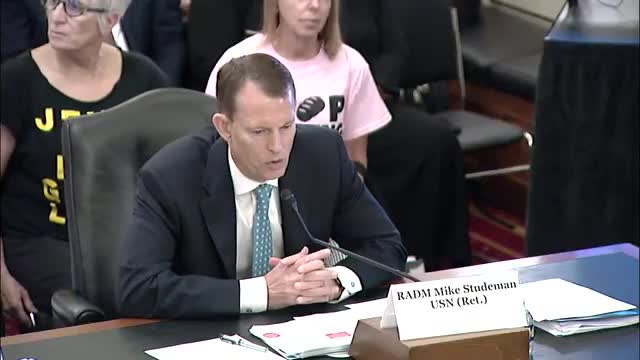
This article was created by AI using a video recording of the meeting. It summarizes the key points discussed, but for full details and context, please refer to the video of the full meeting. Link to Full Meeting
Experts emphasized that the PRC is not only targeting Taiwan's leadership but also attempting to undermine the trust and morale of its citizens. This strategy includes military intimidation, psychological warfare, and efforts to exhaust Taiwan's defenses. The PRC's military maneuvers aim to create a perception of hopelessness regarding Taiwan's ability to defend itself, thereby influencing public sentiment and political dynamics within the island.
Admiral Soobin pointed out that while U.S. lawmakers are aware of China's nonmilitary tactics, there is a significant gap in understanding among the broader public and policymakers. He stressed the need for a comprehensive approach that integrates military readiness with robust information and diplomatic strategies. The current trend of reducing diplomatic and informational capabilities could hinder the U.S. response to China's multifaceted threats.
Espionage was also identified as a critical component of China's political warfare, eroding trust within governmental and societal interactions in both Taiwan and the U.S. This breakdown of trust complicates cooperation and decision-making, particularly regarding defense and security matters.
The meeting underscored the importance of building international coalitions to counter China's influence. Experts argued that the U.S. must not only focus on military deterrence but also engage in trust-building measures with allies and partners. This approach is essential for maintaining credibility and reliability in the face of China's expanding global reach.
In conclusion, the discussions at the meeting highlighted the urgent need for a coordinated response to China's political warfare tactics. As the situation evolves, the U.S. and its allies must adapt their strategies to effectively counter the PRC's influence and support Taiwan's sovereignty. The commission's ongoing work will be crucial in shaping policies that address these complex challenges.
Converted from Stand with Taiwan: Countering the PRC’s Political Warfare and Transnational Repression meeting on July 24, 2025
Link to Full Meeting
Comments
View full meeting
This article is based on a recent meeting—watch the full video and explore the complete transcript for deeper insights into the discussion.
View full meeting